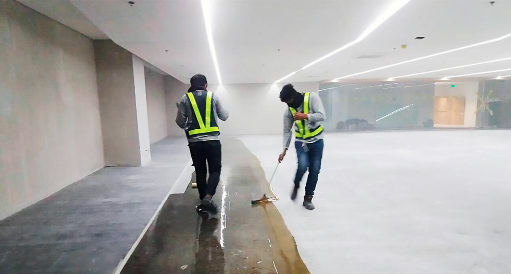Zinc Chromate vs Epoxy Primer: An In-Depth Comparison

Introduction
When it comes to protecting metal surfaces, choosing the right primer is essential for ensuring durability and performance. Zinc chromate and epoxy primers are two popular choices, each offering distinct advantages and suited for different applications. This guide provides a comprehensive comparison of zinc chromate and epoxy primers to help you determine the best option for your project.
Zinc Chromate Primer
Zinc chromate primers are known for their excellent corrosion resistance and adhesion properties. They contain zinc chromate compounds that provide a protective barrier for metal surfaces.
Benefits:
- Corrosion Resistance: Zinc chromate primers offer effective corrosion protection by forming a protective layer that prevents rust formation. The zinc chromate acts as a barrier to moisture and corrosive elements.
- Adhesion Improvement: These primers enhance the adhesion of topcoats to metal surfaces, ensuring better bonding and a more durable finish.
- Drying Time: Zinc chromate primers typically dry relatively quickly, which can be advantageous for projects requiring fast turnaround times.
- Cost: Generally, zinc chromate primers are less expensive compared to epoxy primers, making them a more economical option for many applications.
Drawbacks:
- Health and Environmental Concerns: Zinc chromate contains toxic chromium compounds, which can pose health risks to workers and environmental concerns. Proper safety measures and disposal procedures are necessary when using these primers.
- Durability: While effective, zinc chromate primers may not be as durable as epoxy primers and may not perform well under severe conditions.
- Chemical Resistance: Zinc chromate primers offer limited chemical resistance compared to epoxy primers, which may be a drawback in environments with chemical exposure.
Epoxy Primer
Epoxy primers are high-performance coatings known for their exceptional durability and protective properties. They are used in various industrial, automotive, and marine applications.
Read also: The Power of Ooh screen: Revolutionizing Outdoor Advertising
Benefits:
- Superior Corrosion Resistance: Epoxy primers provide outstanding protection against rust and corrosion, even in severe environments. They create a hard, protective layer that shields metal surfaces from moisture and corrosive elements.
- Chemical Resistance: These primers offer excellent resistance to chemicals, including solvents, oils, and acids, making them suitable for use in challenging environments.
- Durability: Epoxy primers are highly durable and resistant to abrasion, providing long-lasting protection for metal surfaces.
- Adhesion: They offer superior adhesion to various substrates, ensuring that topcoats adhere well and perform optimally.
Drawbacks:
- Higher Cost: Epoxy primers are typically more expensive than zinc chromate primers, which can be a consideration for projects with budget constraints.
- Complex Application: Applying epoxy primers can be more complex and may require specific conditions, such as controlled temperature and humidity, to achieve the best results.
- Surface Preparation: Thorough surface preparation is crucial for epoxy primers to ensure proper adhesion and performance.
Comparison
| Feature | Zinc Chromate Primer | Epoxy Primer |
| Corrosion Resistance | Effective, but less durable in severe conditions | Superior, ideal for harsh environments |
| Chemical Resistance | Limited | Excellent, high resistance to chemicals |
| Durability | Moderate | High, very durable and long-lasting |
| Adhesion | Good, improves topcoat adhesion | Excellent, superior adhesion |
| Cost | Generally lower | Generally higher |
| Application Complexity | Relatively easy to apply | More complex, may require controlled conditions |
| Health and Safety | Contains toxic chromium compounds, requires safety measures | No chromium compounds, safer to handle |
| Environmental Impact | Potential environmental concerns | Generally less environmental impact |
Choosing the Right Primer
- Evaluate Environmental Conditions: For environments with high humidity, chemical exposure, or severe conditions, an epoxy primer is likely the better choice due to its superior protection and durability.
- Consider Health and Safety: If health and environmental safety are a concern, an epoxy primer is preferable due to the toxic nature of chromium compounds in zinc chromate primers.
- Assess Budget: If cost is a primary concern and extreme durability is not required, a zinc chromate primer may be a more cost-effective option.
- Consider Application Requirements: If you can manage the complexities of applying an epoxy primer, its advanced properties may justify the additional effort and expense.
- Surface Preparation: Ensure that the surface is properly prepared regardless of the primer chosen to achieve the best adhesion and performance.
Conclusion
Both zinc chromate and epoxy primers offer valuable benefits but are suited to different applications. Zinc chromate primers provide effective corrosion protection and are more affordable but come with health and environmental concerns. Epoxy primers epoxy primer vs zinc primer offer superior protection, durability, and chemical resistance, making them ideal for demanding conditions and challenging environments. By considering factors such as environmental conditions, health and safety, budget, and application complexity, you can select the primer that best meets your needs and ensures optimal performance.


